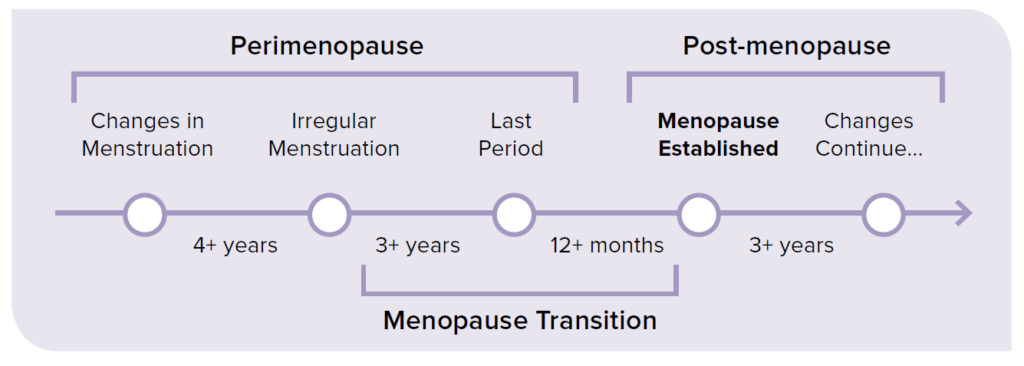
Talking to your healthcare professional about menopause
The transition to menopause is a big shift in a woman’s life. Knowing what questions…

Managing menopausal symptoms is a part of the support women need to adjust through mid-life changes. Planning for menopause with a trusted health professional can help improve each woman’s experience.
Menopause usually occurs from 45 to 55 years of age and is diagnosed 12 months after the last menstrual period. For four to seven years prior to actual menopause, fluctuating hormones (and hence irregular menstrual cycles) occur, with this transitional period called perimenopause.
Perimenopause is recognised by many as a time of ‘hormonal chaos’ during which up to 80% of women suffer from both physical and emotional symptoms, including hot flushes, sweats, anxiety, mood fluctuations and poor sleep. Many women seek effective natural therapies to assist in reducing these, often daily life affecting, symptoms.

Menopausal hot flushes are classically hormonally driven; however, they are also influenced by stress and diet (blood sugar fluctuations). No matter what the cause, it’s all about the ‘bothersome’ factor – whether women have 2 or 20 hot flushes a day, if it’s ‘bothersome’ enough for them to seek help then they need relief.
One herbal remedy for hot flushes is Actaea racemosa (Black cohosh). Studies involving more than 1200 menopausal women demonstrated statistically relevant reductions of major menopausal symptoms, especially the incidence and severity of hot flushes. Additionally, results were seen within 2-4 weeks and with continued improvement over three and nine months.1,2,3
Stress/diet related factors that may exacerbate hot flushes also need to be identified. Erratic eating patterns play havoc with blood sugar levels promoting the incidence or severity of hot flushes. Therefore, menopausal women need to eat more regularly and think ‘paddock to plate’:
On top of menopausal symptoms, women in midlife often have many sources of mild anxiety and stress; juggling work with life, bringing up teenagers, caring for grandchildren or ageing parents and coping with their own inevitable ageing. Therefore, they often need additional nervous system support, like Hypericum perforatum (St John’s wort) and Withania somnifera (Withania), to help with midlife mood and bring some internal calming.
Women can suffer hot flushes or sweats 24 hours a day, which can cause sleeplessness. Alternatively, poor sleep may be due to worrying about ‘midlife stuff’ or being tired, cranky and frustrated at life’s challenges. Reducing hot flushes and promoting a good night’s sleep is idea. The combination of Valeriana officinalis (Valerian) and Humulus lupulus (Hops) can benefit by mimicking the body’s natural sleep hormone (melatonin) and promoting a restful good night’s sleep.4
Postmenopausal women continue to experience at least one menopausal symptom; almost 50% will report more than five. However it is the ‘silent changes’ due to the decline in the protective effects of the hormone oestrogen that require far more important attention. Cardiovascular disease (CVD) is the leading cause of death in postmenopausal women, and cardiovascular markers like increased body weight (especially abdominal fat), hypertension and hypercholesterolaemia, all increase in postmenopause.5 Healthy lifestyle choices (healthy eating and regular exercise) are essential to increase longevity, decrease the risk of osteoporosis and CVD, and manage weight.
The following exercises are very beneficial for menopausal health:
Daily exercise of 30 minutes builds lean muscles, providing benefits for metabolism and improved energy to enjoy midlife and beyond.
A diet rich in antioxidant and anti-ageing culinary herbs and spices has been shown to be beneficial for cardiovascular health.6 Most notable is turmeric, the ‘spice of life’ with antioxidant and anti-inflammatory properties providing therapeutic benefits for various conditions ailing menopausal woman. Others include ginger, cumin, marjoram, cardamom, garlic, cinnamon, oregano and rosemary.
For bone strength menopausal women require 1300 mg/day of calcium, preferably from low calorie dietary sources. They may also require a calcium supplement depending on their dietary intake and individual circumstances. Vitamin D is also an important nutrient for bone and hormonal health, with low levels commonly seen in menopausal women.
Read more about foods to eat during the menopausal transition.
Periodic testing of blood pressure and blood lipid levels is recommended for menopausal women as is bone mass density (BMD). Menopause is an important time to check BMD to identify any health issues early. Between 45 and 60 years of age women experience rapid bone loss and there is a high incidence of osteoporosis in 60+ years of age.
Want answers to common questions for women at all stages of menopause?